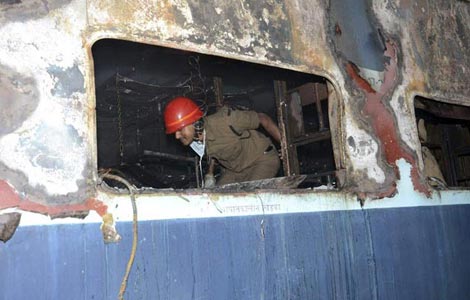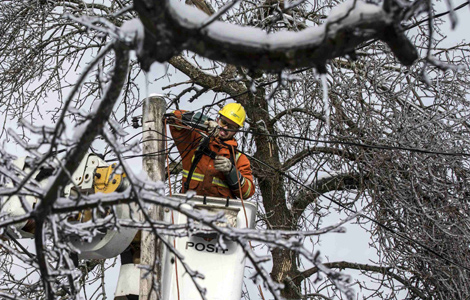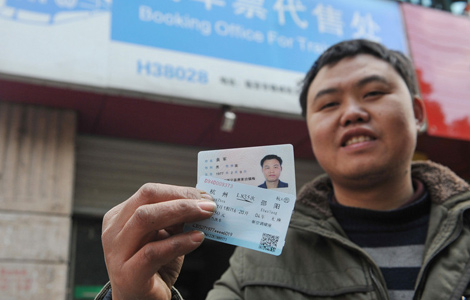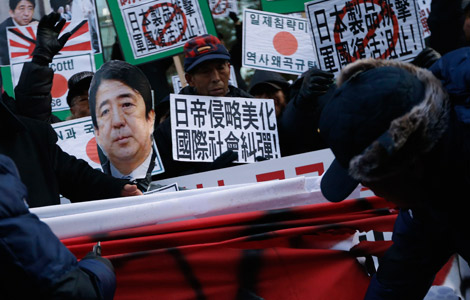Airlines should alter strategy to compete
Updated: 2013-12-30 07:13
By Zhao Lei (China Daily)
|
||||||||
Chinese airlines should change their strategies and improve services to survive the competition brought by the rapid expansion of the high-speed railway network, experts said.
"Airlines should not regard the competition between them and high-speed train services as a zero-sum game," said Wang Ya'nan, deputy editor-in-chief at Aerospace Knowledge magazine.
"However, they can use this opportunity to arouse their employees' sense of crisis, to streamline some complicated procedures that hinder operation and to boost efficiency," he said.
On Saturday, China Railway Corp, the national railway operator, said that seven high-speed lines were put into service, and the total length of Chinese rail lines now exceeds 100,000 kilometers, including more than 10,000 km of high-speed lines.
The unprecedented fast growth of the rail network will cut into airlines' business, especially on flights shorter than 1,000 km, experts said.
"Surveys show that at least 30 percent of regular passengers of airlines will be attracted to railways once a high-speed line is opened," said Li Xiaojin, a professor at the Civil Aviation University of China.
"Each time China Railway Corp accelerates a line's speed, airlines have to accordingly increase their discounts to maintain passengers," he said.
As for the newly opened lines, some industry insiders have predicted that Xiamen Airlines will be hit hard, as one of the newly opened lines links Shenzhen, Guangdong province, and Xiamen, Fujian province, according to China Business News.
In the past, trains from Shenzhen and Guangzhou to Xiamen, a famous tourist destination in the country, took 15 hours. Traveling by bus took nine to 10 hours. As a result, many people traveled by air, which takes only an hour. Discounts on air tickets were rare.
However, the new high-speed rail service between Shenzhen and Xiamen, which takes only three hours, will attract many passengers, said Meng Yu, deputy secretary general of Xiamen Container Transportation Association and a local transport expert.
He forecast that air tickets between Xiamen and cities in Guangdong province will be discounted by up to 70 percent, affecting the carrier's profits.
The opening of another high-speed railway in September caused air ticket prices between Xiamen and Wuhan to drop by 80 percent, he said.
A report by Guangzhou Baiyun International Airport last year also predicted that the air passenger volume between Guangzhou and Xiamen will drop 30 percent following the opening of the new high-speed railway.
"Everyone in this business is closely watching railway development," said a publicity manager with a Beijing-based carrier, who refused to be identified.
Airlines must adjust their routes and operation strategies to meet the challenges of competition from high-speed rail, she said, adding that airlines that focus on the domestic market and have many short-haul flights will be the first to be affected by the bullet trains.
But for higher-level transport officials, the expansion of high-speed railways is not necessarily a bad thing.
Li Jiaxiang, head of Civil Aviation Administration of China, said that the rail sector's prosperity does not contradict airlines' interests.
"The civil aviation industry has consistently witnessed high demand for its services but has failed to fully meet passengers' needs. High-speed rail lines help alleviate airlines' pressures and sometimes inject new momentum to their development," Li said.
Yang Chuantang, minister of transport, also said earlier this month that the expanded railways network increases the country's capacity to transport passengers during the 40-day Spring Festival travel peak, which starts on Jan 16.
zhaolei@chinadaily.com.cn
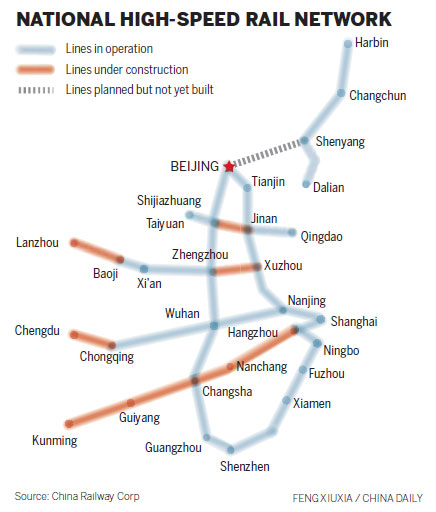
(China Daily 12/30/2013 page3)
Most Viewed
Editor's Picks

|

|

|

|

|

|
Today's Top News
Auto industry rolls through ’13 for China, US
Outrage still festers over Abe shrine visit
Suicide bomber kills 16 at Russian train station
Li says economy stable in 2014
Bigger role considered in the Arctic
3rd high-level official probed
Abe stepping up military agenda
NPO rules expected in 2014
US Weekly

|

|


